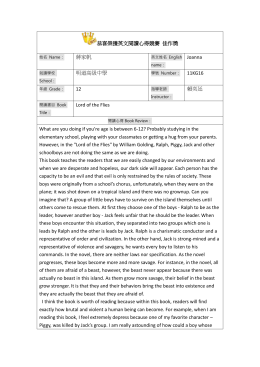Major Works Data Sheet

Title: Atonement Author: Ian McEwan Date of Publication: 2001 Historical Information about period of publication: 21st century Biographical information about the author: McEwan is a British novelist who spent most of his childhood abroad in Asia, Germany, and Africa due to his father’s position as an officer in the Scottish army. His novels besides Atonement include Solar, Black Dogs, and The Cement Garden. He has also written plays, screen plays, and short stories. Genre: drama, romance, war.
Major Works Data Sheet Assignment:Characteristics of the Genre. Describe the Author’s Style. An Example that Demonstrates that Style (Cite). Major Works Data Sheet Reproduce and fill in one set per book/play Biographical information about the author Title Author Date of Publication Genre Historical.
Characteristics of the genre: Drama: dramatic arc: exposition, rising action, climax, falling action, and denouement Romance: revolve around the two people as they develop romantic love for each other and work to build a relationship together; contemporary romance set after WWII War: violence, battle, conflict, takes place during a war Plot summary: 13 year old Briony oversees an incident between her older sister, Cecilia, and her lover, Robbie, that she doesn’t understand. After later witnessing her cousin’s rape, the imaginative Briony convicts innocent Robbie of rape, ruining Cecilia and Robbie’s future together when they are disowned from the family. Robbie must go to war and Cecilia becomes a nurse. Briony matures, realizes what she has done and becomes a nurse as well. However, the separated Robbie and Cecilia tragically die during the war and Briony never gets to seek atonement from them in person. However, she writes this novel in an attempt to tell the truth, give the lovers the happy ending they deserve, and reach atonement. Describe the author’s style: Heavy descriptions, long paragraphs, flowing passages.
Examples that demonstrate style: “He thought he had no expectations - until he saw the beach. He’d assumed that the cussed army spirit with whitewashed rocks in the face of annihilation would prevail. He tried to impose order now on the random movement before him, and almost succeeded: marshaling centers, warrant officers behind makeshift desks, rubber stamps and dockets, roped off lines towards the waiting boats; hectoring sergeants, tedious queues around mobile canteens. In general, an end to all private initiative. Without knowing it, that was the beach he had been walking to for days. But the actual beach, the one he and the corporals gazed on now, was no more than a variation on all that had gone on before: there was a rout, and this was its terminus. The Exorcism Of Anneliese Michel By Felicitas D. Goodman Pdf there. ” (p. 233) Memorable quotations: Significance of quotations: “This was precisely why she loved plays, or hers at least; everyone would adore her”(11) -Briony immerses herself in her writing but really longs for praise.
She prepares the play “The Trials of Arabella” in hopes of impressing her brother. Briony needs attention and tries to use her love of writing to gain it. “Jack Tallis wanted the vase in use, in honor of his brother’s memory. It would not be imprisoned behind glass” (23). -This vase is an important symbol throughout the book and it is ironic that it is meant to honor the brother's memory.
The vase is broken by Cecilia because it is not protected and this is one of the first scenes where Briony is confused by and suspicious of Robbie. “Was everyone else really as alive as she was? Rocker Patch Generator. For example, did her sister really matter to herself, was she as valuable to herself as Briony was? -This is an example of the very deep and philosophical questions that Briony thought about at a young age. “Saying it out loud was as great a crime as the act itself, whatever that was” (54).
-(Referring to divorce) The cousins, especially Lola, are very ashamed about the ir parents divorce and don't feel comfortable in the Tallis home. “‘I’d love to come up to town’. Even as she said the words she imagined herself being dragged back, incapable of packing her bag and making the train” (104). -Cecilia loves the idea of leaving her home but realizes she does not really want to. She thinks about it during several different occasions, but always comes to the same conclusions, that she can’t.